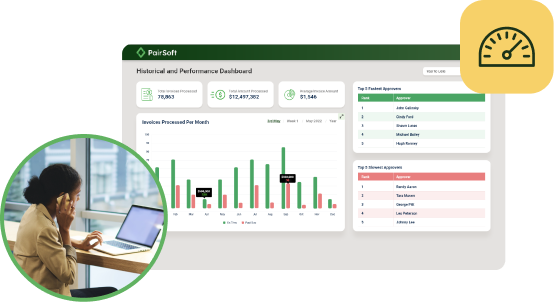
Wadih Pazos
Wadih founded both PairSoft and PaperSave. He is an avid technologist who specializes in streamlining operations and maximizing productivity.
View all posts by Wadih PazosWadih Pazos • October 1, 2021

That being said, the above examples are purely reactionary. This makes sense – many times when a change is made, it has a snowball effect on other parts of a company. However, in order to implement a big change, there doesn’t have to be some force requiring this to happen.
For example, in an effort to be proactive and bring their operations into the 21st Century, a lot of firms across the United States are going paperless and embracing electronic workflow. But, they’re doing so on their own, not because they explicitly have to. And for those who have already gone digital, that shouldn’t be much of a surprise – the fact is that there are numerous advantages that go along with implementing electronic document management software, so individuals could list many different reasons behind the move.
But some professionals mulling over whether or not paperless is for them might want to know what some of the most commonly cited motivations behind this choice are.
One of the most popular reasons entities of any kind choose to go paperless is to allow more individuals to access the documents that make their way online. For instance, according to KOAM-TV, this was the motivation behind the creation of the Lincoln Archives Digital Project within the U.S. National Archives in Washington, D.C.
The news source stated that two interns will be undertaking an initiative to place the institution’s records dating from March 1861 to April 1865 on an electronic platform during Pittsburgh University’s upcoming winter break.
“Having these documents in a digital form allows researchers from around the world to access them,” Jake Letner, one of the interns, told the news outlet.
That’s also partially why Indiana’s Cass County Historical Society is going paperless, according to the Pharos-Tribune. The group’s executive director, Thelma Conrad, explained that families traveling overseas to access the historical and genealogical database wouldn’t be uncommon. This is something that wouldn’t have to happen if the records were online.
While this can also be a reactionary cause for the change to paperless, a number of individuals, businesses and other institutions have realized that digitizing is a great way to keep records safe while making access easy and efficient.
For instance, the news source noted that in Cass County, members of the Historical Society think that that this is a great way to store records and ensure they remain safe from things such as natural disasters or thieves, while still keeping the original copies handy for those interested in seeing a historical document.
Consider how long it takes you to get up from your desk, go to the file cabinet (or worse, hop in your car and drive to a remote storage facility), figure out the filing system and thumb through until you find the right paper. After you’ve used it, you have to repeat the process to return it. According to Montgomery News, Alabama’s Montgomery County Planning Commission is going paperless in order to cut out the process of going back and forth between tangible files.
Business leaders will find that access can be granted with the click of a few keys, which can benefit productivity and make workers much more effective.


